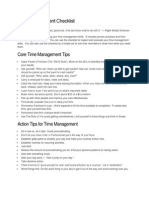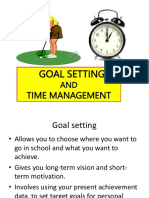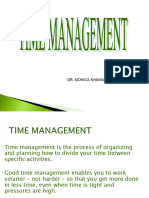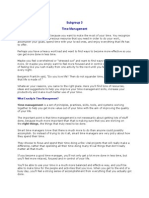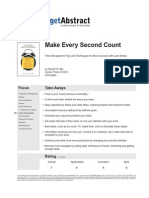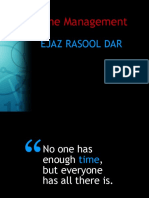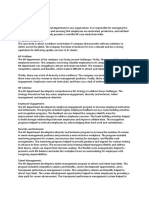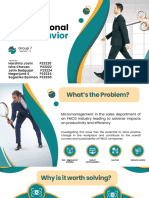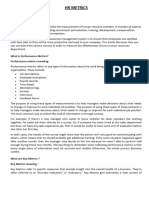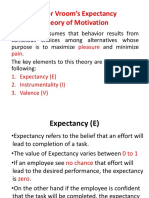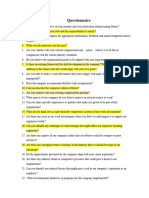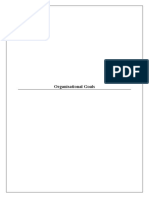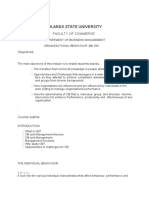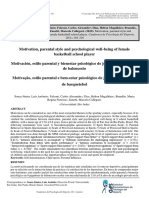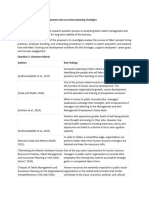0% found this document useful (0 votes)
21 views15 pagesEngineering Time Management
The document discusses strategies for effective time management, including scheduling protected time for tasks, setting goals, and maximizing efficiency. It recommends blocking out distraction-free time on a schedule, grouping similar tasks, and allowing for buffer time. Goals should be specific, measurable, attainable, rewarding and timely. Large tasks should be divided into manageable subtasks with dedicated timelines. Getting organized, multitasking when possible, and maintaining a positive mindset can help maximize efficiency.
Uploaded by
abdulrahman11510.qasimCopyright
© © All Rights Reserved
We take content rights seriously. If you suspect this is your content, claim it here.
Available Formats
Download as PDF, TXT or read online on Scribd
0% found this document useful (0 votes)
21 views15 pagesEngineering Time Management
The document discusses strategies for effective time management, including scheduling protected time for tasks, setting goals, and maximizing efficiency. It recommends blocking out distraction-free time on a schedule, grouping similar tasks, and allowing for buffer time. Goals should be specific, measurable, attainable, rewarding and timely. Large tasks should be divided into manageable subtasks with dedicated timelines. Getting organized, multitasking when possible, and maintaining a positive mindset can help maximize efficiency.
Uploaded by
abdulrahman11510.qasimCopyright
© © All Rights Reserved
We take content rights seriously. If you suspect this is your content, claim it here.
Available Formats
Download as PDF, TXT or read online on Scribd
/ 15






